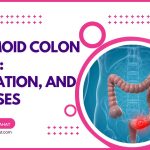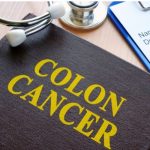Stomach Pain at Night and Early Morning: 6 Causes, Doctor Explains.
Our content is not intended nor recommended as a substitute for medical advice by your doctor. Use for informational purposes only.
Summary of the causes of stomach pain at night and early morning:
- Gastritis and peptic ulcer disease.
- GERD (chronic acid reflux).
- Gallbladder diseases such as gallstone disease.
- Food intolerances and allergies such as lactose intolerance.
- Other less common causes include intra-abdominal cancers, IBD, IBS, uterine and ovarian pain, and others.
1. Gastritis & Peptic ulcer disease.
Gastritis is the inflammation of your stomach lining. Gastritis commonly occurs due to either:
- H. pylori infection of the stomach.
- The abuse of Non-steroidal anti-inflammatory drugs such as Ibuprofen, Diclofenac, and others.
- Irritants such as spicy food, caffeine, fatty foods, smoking, etc.
Also, Gastritis can occur due to various causes such as autoimmune gastritis, Eosinophilic gastritis, lymphocytic gastritis, sarcoidosis, bile reflux, and other infections (reference).
As gastritis becomes more severe and chronic (especially with H. pylori and NSAIDs), ulcers may develop in your stomach or the duodenum (peptic ulcer disease).
Both peptic ulcer disease and chronic gastritis cause stomach pain, which can worsen at night and in the early morning.
Symptoms:
- Epigastric (upper-middle) stomach pain. The pain gets worse after meals and at night & in the early morning.
- If a duodenal ulcer develops, The stomach pain may improve after eating.
- Nausea or vomiting.
- Anorexia (loss of appetite).
- The pain is continuous, gnawing or burning in nature.
- In peptic ulcer disease, bleeding can occur, leading to vomiting of blood (hematemesis), the passage of jet-black stool (melena), and low blood pressure.
At night, your digestion slows down. Therefore, eating directly before you sleep will trigger gastritis causing stomach pain at night and early morning.
2 . GERD.
GERD (gastroesophageal reflux disease) or acid reflux is the backflow of your stomach acid into the esophagus.
GERD is a common disease affecting about 18-28% of US citizens (reference). GERD occurs when the lower esophageal sphincter fails to function, preventing acid from backflow into the stomach.
One of the common causes of the failure of the LOS (lower esophageal sphincter) is the presence of a hiatal hernia.
A hiatal hernia bulges the upper part of your stomach into the chest through the esophageal opening in the diaphragm.
GERD and Hiatus hernia-related GERD can cause stomach and chest pain to worse at night and in the early morning.
Symptoms:
- Heartburn: A burning sensation in your chest and the upper stomach area. Heartburn typically increases when you lie down. That’s why stomach pain may be worse at night and in the early morning.
- Regurgitation of bitter fluid or food particles into the throat.
- Difficulty swallowing (dysphagia).
- Pain during swallowing (odynophagia).
- Bleching (eructation).
- Nausea.
- Vomiting occurs in severe cases.
- A clinically significant GERD is defined as the occurrence of two or more attacks per week of night chest and stomach pain with regurgitation.
3. Gallbladder diseases.
Your gallbladder can be affected by many diseases and conditions. However, the most common type of gallbladder disease is gallstone disease.
Gallstones are found inside the gallbladder with or without inflammation (cholecystitis).
Even when there is no cholecystitis, gallstones can cause what is known as (biliary colics). Biliary colics can occur anytime but is more common after fatty meals.
Night meals before sleep can lead to stomach pain at night.
Gallbladder pain symptoms are explained in detail in the table below.
| Biliary colic (Uncomplicated gallstone). | Description |
| 1. Site | Usually, The right upper quadrant of your abdomen. |
| 2. Spread | – The pain may spread to the back of the right shoulder. – Also, it spreads to the epigastric area. |
| 3. Character | Constant builds up then disappears gradually. |
| 4. Duration | At least 30 minutes. It may last up to 6 hours. |
| 5. Relation to food | – Triggered by foods (especially fatty food and large meals. – However, it can start spontaneously. |
| 6. NOT related to: | Movement, bowel movements, or the passage of flatus. |
| 7. Nausea | Often Present, severe. |
| 8- Commonly associated symptoms | Vomiting, sweating during the attack. |
4. Food intolerance and allergies.
Food intolerance is trouble digesting or absorbing certain foods from your gut. The undigested or unabsorbed food remains longer inside your stomach and intestine.
Bacteria then consume the stagnant food-producing gas as a byproduct. The more you eat from the offending foods, the more gas, and burping you get.
Food intolerance is widespread, affecting up to 20% of people (reference). Also, an allergic reaction to food (mediated by your immune system) can develop. The differences between food intolerance and allergy are explained in the table below.
| Food intolerance | Food allergy |
| Affects 15-20% of the population | Affects nearly 2-5% of adults |
| Difficulty digesting certain types of food (not immune-mediated allergy). | An immune-mediated reaction to certain foods or food components. |
| Causes “recurrent acute” or “chronic” attacks of diarrhea (which can be bright yellow & watery). | Usually causes acute attacks related to the ingestion of offending food. |
| Intestinal symptoms: diarrhea, extensive gas, bloating, and abdominal pain | Intestinal symptoms are the same. |
| No extra-intestinal symptoms | Extraintestinal symptoms like rashes, urticaria, swollen lips or face, or severe life-threatening allergic reactions. |
| The severity of your symptoms is proportional to the amount you eat from the offending food. | Even trace amounts of the offending food can produce severe symptoms. |
Common offending foods:
| Common offending foods: (examples)
|
Also, food intolerance can occur physiologically. For example, eating large amounts of gas-producing foods leads to burping after eating.
5. others:
The below causes are common causes of abdominal pain. However, they are often associated with severe symptoms other than abdominal pain such as diarrhea, blood in stool, and others.
- Inflammatory bowel disease (IBD): includes Crohn’s disease and ulcerative colitis. It involves severe inflammation and ulcers in your digestive tract, with diarrhea and blood in stool in most cases.
- Irritable bowel syndrome (IBS): A prevalent functional bowel disease with recurrent abdominal pain, bloating, changes in bowel habits. However, it is not known for IBS to cause stomach pain that awakens you at night.
- Celiac disease: severe gluten intolerance leading to malabsorption of nutrients with severe diarrhea, bloating, anemia, and others.
- Kidney stones: often causes acute onset of extreme pain in the loin area (sides of your abdomen). Not associated with a specific time.
- Infections: acute or chronic gastrointestinal infections such as typhoid fever, brucellosis can
- cause stomach pain at night and early morning.
- Cancers: Any intra-abdominal cancer can cause nighttime and early morning stomach pain. Common examples are stomach cancer, liver cancer, ovarian cancer, and others.
- Appendicitis: acute appendicitis causes sudden onset of extreme abdominal pain that can awaken you at night. The pain starts around the umbilicus and may become localized in the lower right abdomen.
- Pancreatic conditions: Chronic pancreatitis leads to chronic abdominal pain with diarrhea (often fatty and greasy).
- Female-only causes: various conditions and diseases of the female reproductive system can lead to stomach pain at night and early morning. Common examples are ovarian systems, menstruation cramps, ovulation pain, uterine fibroids, and pelvic inflammatory disease.
When to see a doctor.
- Severe intolerable abdominal pain that doesn’t go away.
- Persistent vomiting.
- Persistent or severe diarrhea or constipation (persistent changes in bowel habits).
- A pain that lasts for more than three days without obvious causes.
- Presence of red blood or black stools.
- Weight loss without trying.
- Vomiting of blood.
- Fever.
MORE:
- Evidence-based
- Written by a doctor.






